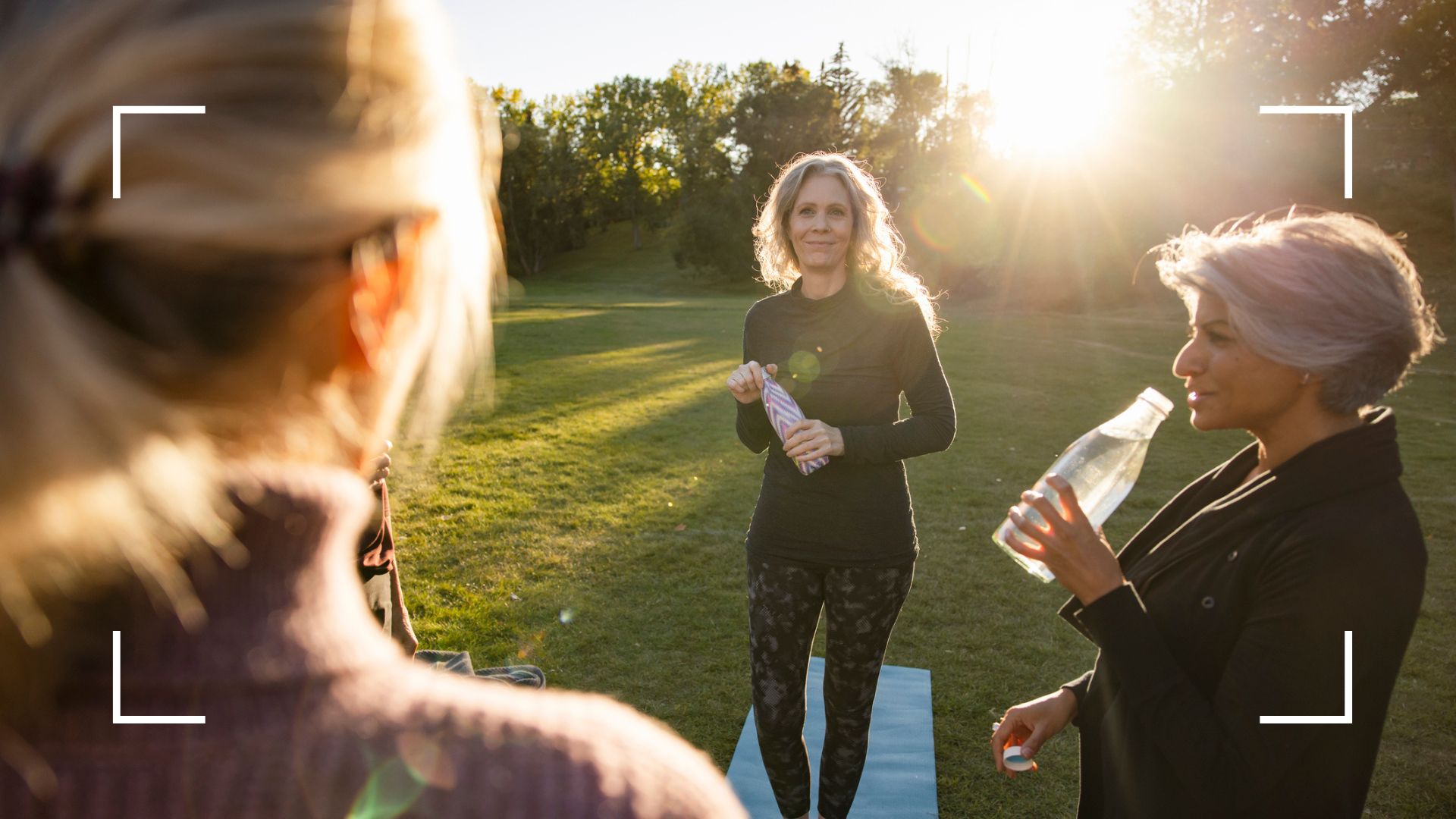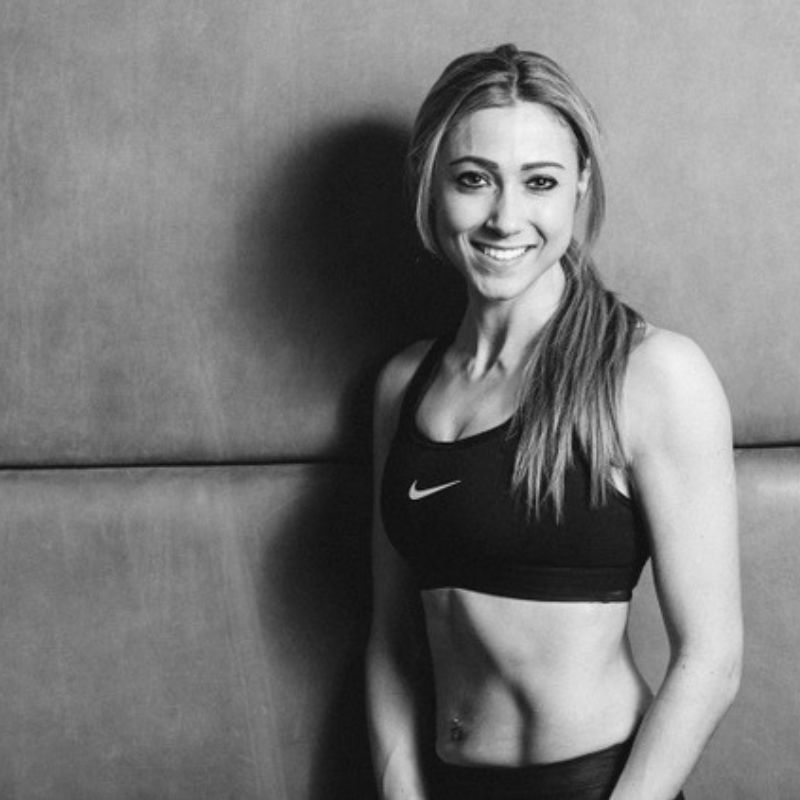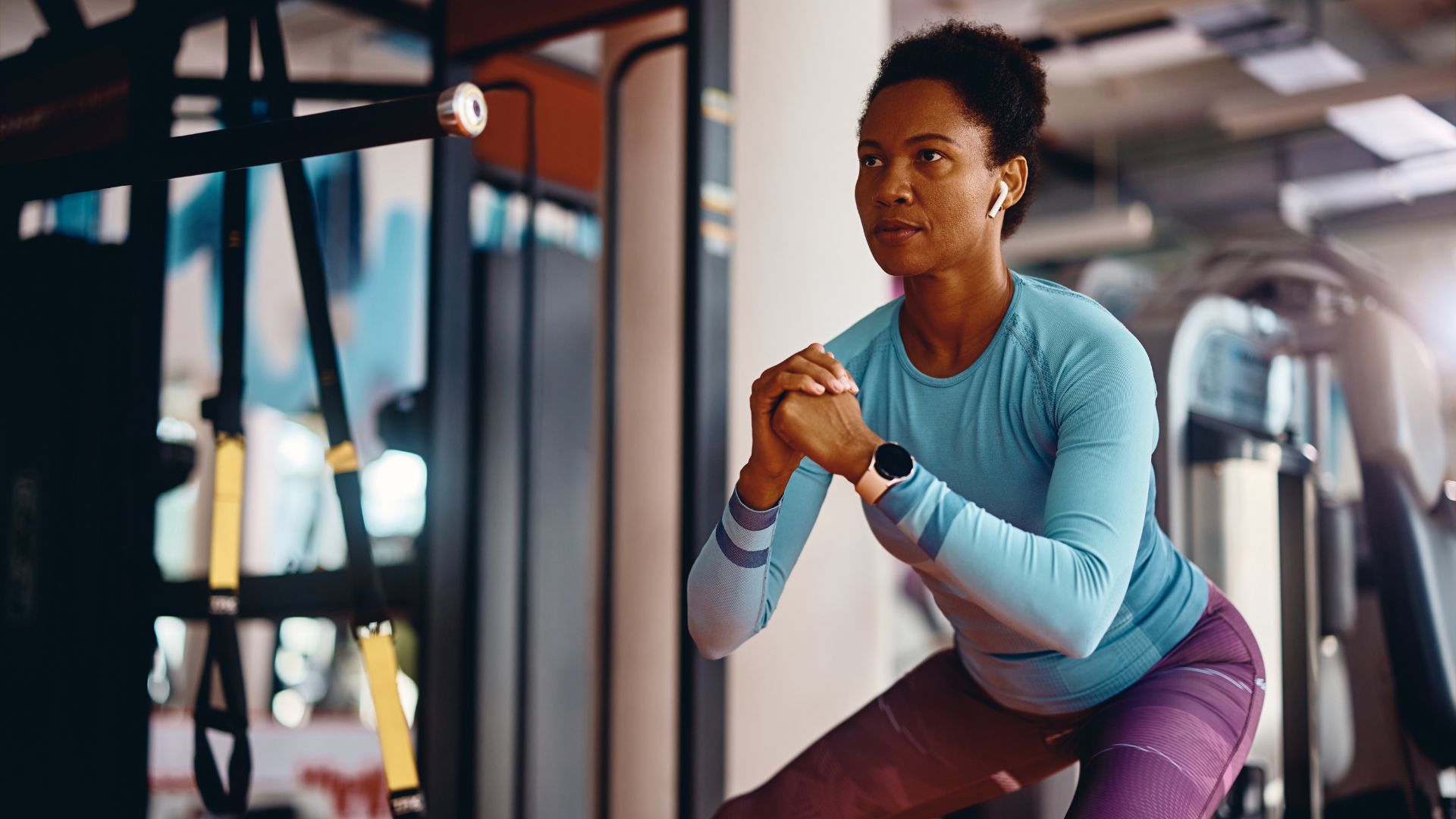Does exercise help menopause? Experts reveal the three main workouts to ease symptoms
Exercise can help ease some of the more unfortunate symptoms of menopause, from hot flashes to insomnia


Does exercise help menopause? If you're experiencing symptoms of menopause like hot flashes and fatigue, the idea of doing a workout may be the furthest thing from your mind - and we don't blame you. However, from both a mental and physical perspective, picking up an activity can make a world of difference.
We know that exercise is good for us at any stage of life, of course. It gets us up and moving, improving our heart health and reducing the risk of disease. It's good for our bones and joints and it does wonders for the brain. When it comes to menopause though, the impact exercise has on our bodies can be truly surprising.
But you don't have to just take our word for it. Here, woman&home speaks to a GP specialising in menopause and a certified personal trainer to reveal what works best even in limited time, and we speak to several women who found their menopause symptoms entirely changed for the better after working out.
Does exercise help menopause?
Yes, absolutely. Exercise can help to lessen the symptoms of menopause for two main reasons, says Dr Rebeccah Tomlinson, GP and menopause specialist who works with Health&Her. "Firstly, menopause increases our core temperature, which leads to symptoms like night sweats and hot flushes, but exercise seems to help lower overall core temperature and improves how the body dissipates heat," she explains. "Secondly, exercise increases our dopamine and serotonin levels, the happy hormones that naturally lift our mood."
She also adds that exercising with friends, as many of us do, will help to increase these happy hormones further and weight loss is a common side effect of exercise (combined with a lower-calorie diet), which may also help reduce symptoms for some people.

Not only is Dr Rebeccah Tomlinson a registered member of the British Menopause Society and the Faculty of Sexual Health, but she is also working towards becoming a Menopause Specialist Trainer. Throughout her career, Dr Tomlinson has continued to advocate for women's menopausal care and work to share awareness of the different symptoms.
Lucie Cowan, a certified personal trainer and master trainer at Third Space, agrees. "Sleep disturbances are a common complaint among those going through menopause and engaging in regular exercise can improve sleep quality by promoting relaxation and reducing insomnia in menopause," she says.
"Exercise, such as lifting weights, walking and running, can also help maintain bone density and reduce the risk of fractures while helping to maintain cardio fitness, which reduces the risk of heart disease and helps to manage blood pressure and cholesterol levels."
Sign up to our free daily email for the latest royal and entertainment news, interesting opinion, expert advice on styling and beauty trends, and no-nonsense guides to the health and wellness questions you want answered.

Lucie is master trainer for classic group exercise at Third Space London. She developed her knowledge and skills in the fitness industry over a number of years alongside working in the science sector and holds three medical science degrees, a Bachelors (BSc), a Masters (MSc) and a Doctorate (PhD). Her role as Master Trainer combines her love for teaching classes, whilst supporting and training other instructors to excel at their passion and inspire their own class members.
What type of exercise is best for menopause?
1. Cardio exercise
Cardiovascular exercise includes basically anything that gets you up and moving and, importantly, out of breath. That could be doing walking as a workout if you're new to exercise, your favourite dance class at the gym, or taking up a new activity like pickleball for beginners.
"These workouts help improve heart and lung health, and boost your mood," says the personal trainer. "It's beneficial for managing menopause symptoms like hot flashes and mood swings."
For Donna McConnell, who started doing triathlons at age 46 while going through the symptoms of perimenopause, exercise was the game-changer in her lifestyle. "I was going through changes as a woman. It was kind of a pivotal point as I had to decide what I wanted my life to look like going forward from that moment,” she tells me. “Exercise really helped me manage the symptoms of perimenopause, like hormonal fluctuations and the weight gain that’s associated with it. It’s really tough. I’m an active person but this weight was going on, so I thought, ‘how can I change this?’. I had to do something positive for myself.”
2. Strength training
When it comes to exercise and menopause though, there's perhaps no exercise more important than strength training. Whether you pick up classic weightlifting in the gym, strength training workouts at home, or Pilates for strength training, it's so important to incorporate some resistance-based training into your routine.
"It helps to maintain muscle mass and bone density, which can be affected by hormonal changes during menopause," Cowan explains. "It also contributes to weight management, alongside some cardio."
The mental health benefits of strength training in menopause also can't be undervalued. After experiencing the first symptoms of menopause in lockdown, complete with fatigue, sore joints, migraines, anxiety, and hot sweats, Mel Bligh makes sure she goes to the gym four times a week. "Even though this is something I do alone, there is a community of like-minded people who understand how empowering strength training is," she tells me. "I encourage other women to ‘the dark side’ of the gym whenever I can. As a 52-year-old woman, I feel strong, capable, and confident and I put so much of this down to strength training."
If you're unsure how to get started with strength training for beginners, consult a personal trainer at your local gym.

3. Yoga
While cardio exercise that raises your heart rate and strength training are very important, it's a good idea to incorporate some lower-impact moves as well. Chances are, you're not going to have time for everything but even just using one of the best yoga apps for 10 minutes a day can make a difference.
"Yoga combines physical postures, breathing exercises, and relaxation techniques. It can help reduce stress, improve flexibility, and alleviate anxiety or mood swings," says the personal trainer. "Plus, stretching exercises can be particularly beneficial for addressing joint stiffness and aching muscles common during menopause."
For some, doing yoga in menopause can completely change the experience. Meera Bhogal, personal trainer and menopause specialist, says a combination of exercises, including yoga, made a huge difference to her symptoms. "I've always liked exercise but as I learnt more about perimenopause, I changed from lots of cardio to weight lifting, strength training, and practising Ashtanga yoga daily to help with my anxiety," she says. "I felt calmer [going onwards], my symptoms were more readily managed and I felt more positive. My joint pain reduced, brain fog lifted, and my mood was better."
It's something that hypnotherapist Julie Bale can relate to as well. "My experience of menopause was pretty awful. I had hot flushes for about a year, my brain fog was awful, migraines almost daily and my weight crept up. Most concerning though were my feelings of being overwhelmed and stressed. I had mood swings which were so awful that I didn’t recognise myself and I was awful to those closest to me," she says. "After yoga, I always felt calmer, happier, as if I’d had a pause, a reset and levels of physical and emotional heat were much lower. It’s wonderful having something that brings you back in control of your body during this frightening transitional time."
Pilates is a similar option if you want a combination of strength training and yoga. "It focuses on core strength, flexibility, and overall body balance. It's effective in maintaining a strong core, which can aid in posture and alleviate back pain," she says.
How often should you exercise during menopause?
The general recommendation for exercise is 150 minutes of moderate-intensity cardio or 75 minutes of vigorous-intensity cardio per week. "You can break this down into sessions of 30 minutes, five days a week, or customise it to your comfort level," says Cowan.
This 75 to 150-minute time slot should be split between cardio exercise and strength training, per government health guidelines, but the trainer also recommends bringing in some balance work to your routine. It doesn't have to be doing yoga every day, even a little bit can make a world of difference.
"Include stretching and balance exercises regularly to maintain flexibility and reduce the risk of injury," she says. "These can be integrated into your routine daily or at least three times a week."

Does exercise help hot flashes?
Exercise may not completely prevent hot flashes during menopause but it can certainly help to reduce their frequency and intensity. "Exercise has a positive impact on the body's thermoregulation, which can help in managing hot flashes in many ways," says Cowan.
For example:
- Exercise improves circulation: "Exercise promotes better blood circulation, which can help regulate body temperature," she says. "Improved circulation might make hot flashes less severe or frequent."
- Exercise reduces stress: "Stress is known to trigger or exacerbate hot flashes. Exercise can help reduce stress and anxiety, potentially lessening the likelihood of experiencing hot flashes due to emotional triggers."
- Exercise can help manage weight: "Maintaining a healthy weight through exercise can help regulate hormones, as excess fat tissue can produce oestrogen," says Cowan. "Hormonal imbalances can contribute to hot flashes, so weight management can be a key factor in their reduction."
Naturally, as symptoms of menopause vary from person to person, so does the response to exercise. "What works for one person might not work the same way for another," the trainer warns. "Some women might find that regular exercise is highly effective in reducing the frequency and severity of hot flashes, while for others, it might have a more modest impact."
While menopause symptoms and their severity differ between people, science backs the idea. A study by Liverpool John Moores University, for instance, found that cardio exercise - so running, cycling, swimming, walking, and so on - was particularly effective as it raised core temperature and improved the function of the blood vessels. Another study by the University of Maryland looked at the severity of cases and found that exercise improved severe symptoms too.

Grace Walsh is woman&home's Health Channel Editor, working across the areas of fitness, nutrition, sleep, mental health, relationships, and sex. She is also a qualified fitness instructor. In 2025, she will be taking on her third marathon in Brighton, completing her first ultra marathon, and qualifying as a certified personal trainer and nutrition coach.
A digital journalist with over seven years experience as a writer and editor for UK publications, Grace has covered (almost) everything in the world of health and wellbeing with bylines in Cosmopolitan, Red, The i Paper, GoodtoKnow, and more.